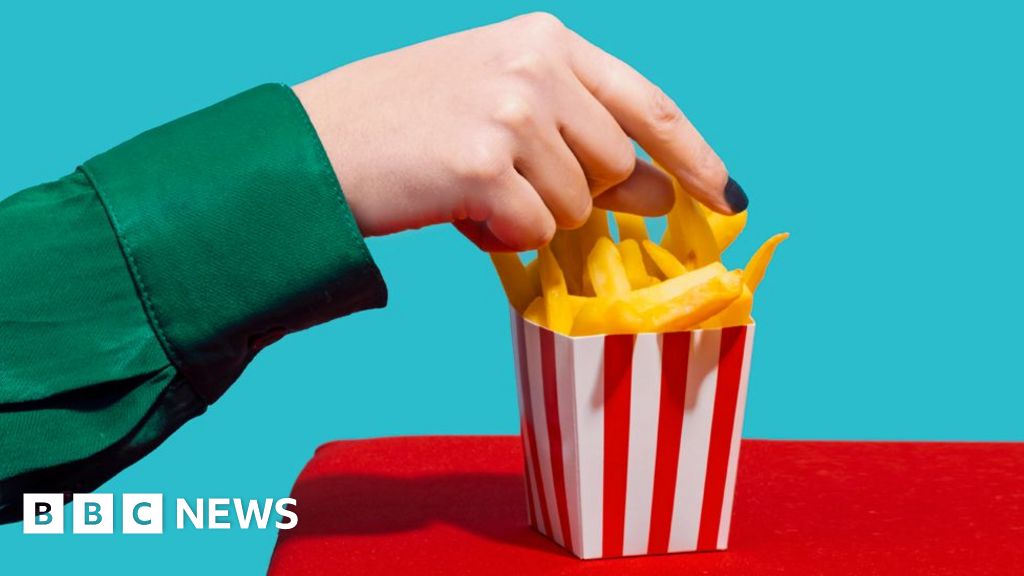ARTICLE AD BOX
By Philippa Roxby
Health reporter
Being double vaccinated still offers the best protection against the Delta variant, first identified in India and now dominant in the UK, according to a new study.
But people who have had both doses can still catch and transmit the disease, so researchers say it is essential that as many people are possible get the jab.
Everyone aged 16 and over in the UK can now receive the Covid vaccine.
What are the plans for vaccinating teenagers?
Over-16s are now being offered a single dose of the coronavirus vaccine across the UK.
There are an estimated 1.4 million people in this age group. NHS England says that more than 360,000 have already received the vaccine, including those eligible because of an underlying health condition.
People in this age group don't need parental consent, as they are considered capable of making their own medical treatment decisions.
GPs are also inviting at-risk children aged between 12 and 15, who are clinically vulnerable to Covid or live with adults who are at increased risk of serious illness from the virus, to get vaccinated. Around 30,000 children in this age group have had the jab.
There are currently no plans to vaccinate healthy children of this age.
How many people have been vaccinated in the UK so far?
More than 47m people - nearly 90% of the adult population - have had their first dose. Almost 41m people (77% of UK adults) have now received both Covid jabs.
Under-30s only became eligible for the vaccine in June.
So far about two-thirds of 18-29-year-olds in England have received at least one jab. In Scotland and Wales, the figure is about 75%.
How can I get my vaccine?
In England, adults and those within three months of turning 18 can book a jab either online or by calling 119. You can also visit a walk-in clinic without an appointment. Check your local health providers and social media groups for details.
All 16 and 17-year-olds are being asked by text or letter to make an appointment through their GP, or they may be able to go directly to a walk-in centre in their area.
In Scotland, everyone aged 16 and over can register to get the vaccine on the NHS inform website or by calling 0800 030 8013. Most health boards also have drop-in vaccination clinics.
In Wales, adults should contact their local health board if they have not already been offered a jab. Invites are being sent out to 16 and 17-year-olds.
In Northern Ireland, you can book online or call 0300 200 7813. Walk-in centres are now open to older teenagers.
What vaccine will I get and can I choose?
You can't choose what vaccine you get. It's based on your age and whatever vaccines are available at the time.
Under-18s have so far been offered Pfizer. The medicines regulator has now said the Moderna vaccine is safe for use in 12-17-year-olds, so it may also be given to this age group.
How effective are the vaccines?
The risk of becoming ill from Covid is about 90% lower if you've been jabbed.
People who have had the vaccine can still catch and transmit the disease. A small number may sadly die.
After four or five months, the study suggests you have the same amount of protection whether you had AstraZeneca or Pfizer.
Neither is as effective against Delta as they are against the Alpha variant, which was responsible for most UK infections last winter.
Researchers don't yet have enough data to compare the Moderna jab, but believe it is "almost certainly at least as good as the others".
The study also shows that younger people gain more protection from being vaccinated than older people.
Do I have to have the vaccine?
Covid vaccines are not compulsory, but everyone is being urged to get jabbed, to protect themselves, their family, friends and wider society.
Younger people are less likely to die from Covid-19. But at the beginning of August, a fifth of those in hospital in England are aged 18-34.
Without a jab you may not be able to do certain jobs. And some countries only allow fully vaccinated travellers to enter.
The government has also said clubbers and people attending some other venues in England will have to be fully vaccinated by the end of September.
What are the side effects?
Most are mild, completely normal and disappear after a few days.
They happen because the body's defences are reacting to the vaccine, and include:
- a sore arm
- tiredness
- fever
- headache
- feeling sick
A very small number of people have experienced a severe allergic reaction after the Pfizer and Moderna vaccines, and you should discuss any allergies you have before vaccination.
There have been reports that a very small number of young people developed inflammation of the heart muscle after receiving the vaccine. However, they would be much more likely to develop the condition from Covid itself.
Can I drink alcohol after the vaccine?
There's no evidence to suggest you should avoid alcohol altogether, but drinking in large quantities can suppress your immune system.
Does the vaccine affect periods?
This may be because the jab prompts an increase in activity in the immune system, which also plays a role in the menstrual cycle.
What if I'm pregnant or breastfeeding?
Coronavirus can cause serious illness in some women in later pregnancy, and possibly a slightly higher rate of stillbirth.
You are encouraged to discuss any questions you have with your GP or midwife.
If you're planning a pregnancy or are breastfeeding you can still get vaccinated, government guidance says.
What if I've got long Covid?
A recent study suggests vaccination can help improve long Covid symptoms.
The vaccine could be pressing the body's reset button and helping it recover, researchers say.
The BBC is not responsible for the content of external sites.

 3 years ago
164
3 years ago
164








 English (US) ·
English (US) ·